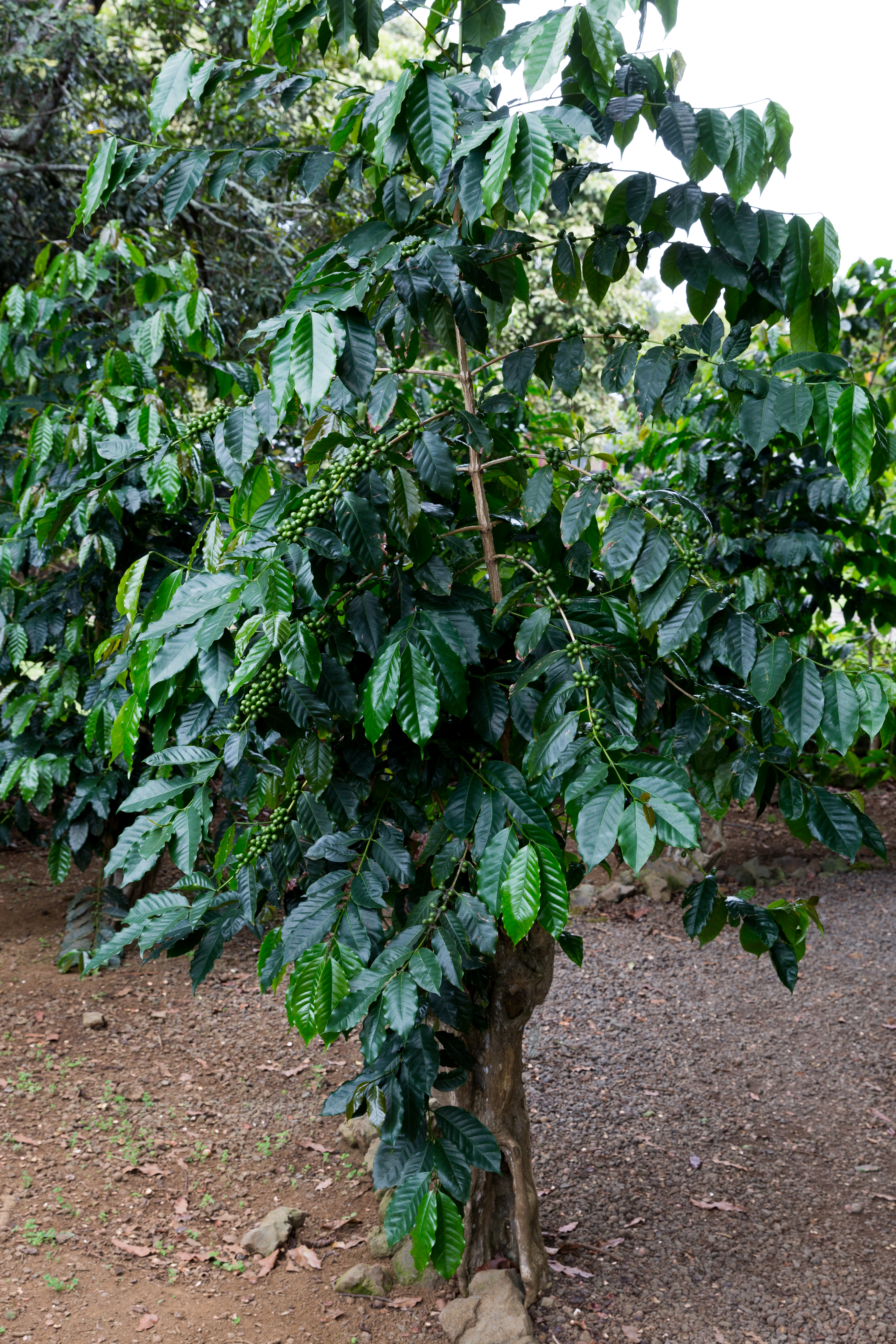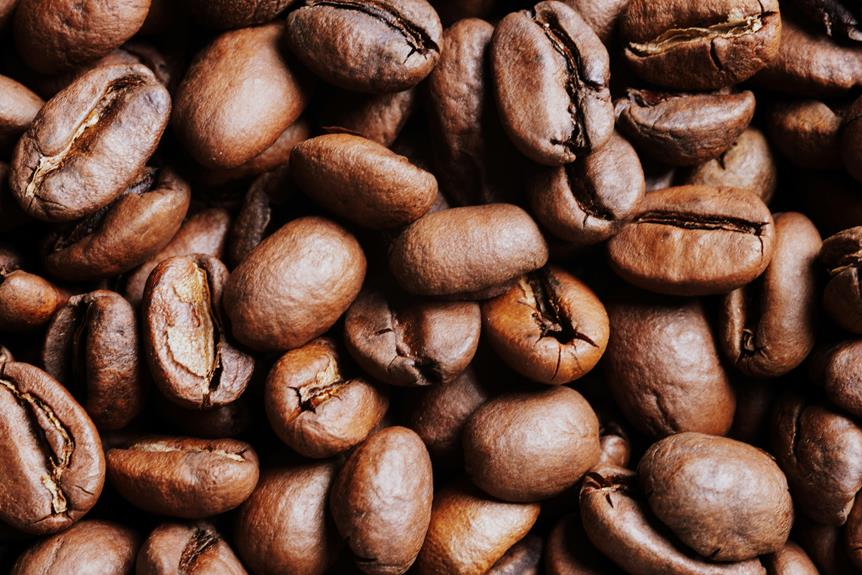You’re about to discover a world of coffee beans that’s more diverse than you ever imagined. Arabica beans offer complex flavor profiles, ranging from fruity to nutty, while Robusta beans provide a bold and bitter taste. Liberica and Excelsa beans boast fruity and floral notes, and rare varieties like Kopi Luwak and Jamaican Blue offer unique characteristics. Specialty beans like Gesha and Yirgacheffe add to the mix, each with their distinct flavor profiles. As you explore this guide, you’ll uncover the intricacies of each type, and your coffee journey is about to get a whole lot more interesting.
Key Takeaways
- Arabica beans offer complex flavor profiles, influenced by factors like altitude, soil quality, and processing methods.
- Robusta beans are suitable for those who need an energy boost and are often used in instant coffee and espresso blends.
- Liberica and Excelsa beans are prized for their fruity and floral notes, with hints of spice and chocolate, and are often grown in high-altitude regions.
- Rare and exotic coffee varieties, such as Kopi Luwak and Jamaican Blue, are sourced from remote regions and prized for their distinct characteristics.
- Specialty coffee beans, including micro lot, farm direct, Gesha, Yirgacheffe, and Kona, offer unique flavor profiles and are often sourced from specific regions or farms.
Understanding Arabica Coffee Beans
You’ll likely come across Arabica coffee beans in specialty coffee shops and gourmet cafes, where their distinct flavor profiles and nuanced acidity are prized by coffee connoisseurs.
Arabica beans are renowned for their complex flavor profiles, which can range from fruity and floral to nutty and chocolatey. These flavor profiles are heavily influenced by factors like altitude, soil quality, and processing methods. As a result, Arabica beans can exhibit a wide range of flavor profiles, from bright and citrusy to smooth and balanced.
When it comes to roast levels, Arabica beans can be roasted to bring out different flavor characteristics. Lighter roasts tend to accentuate the coffee’s acidity and fruit notes, while darker roasts bring out deeper, richer flavors. Medium roasts often strike a balance between the two, offering a smooth and balanced flavor profile.
Whether you prefer a light and fruity cup or a rich and bold one, Arabica beans can deliver a wide range of flavors to suit your taste. By understanding Arabica flavor profiles and roast levels, you’ll be better equipped to navigate the world of specialty coffee and find your perfect cup.
Robusta and Its Uses

While Arabica beans steal the spotlight in specialty coffee, Robusta beans have their own unique strengths and uses that make them a valuable addition to the coffee world.
You might be surprised to learn that Robusta beans have a higher caffeine content than Arabica beans, making them a great choice for those who need an extra energy boost.
Additionally, Robusta beans are often used as a base for instant coffee due to their ability to withstand the high-temperature drying process.
When it comes to brewing methods, Robusta beans are well-suited for espresso blends because of their bold and bitter flavor profile.
In fact, many Italian espresso blends use a combination of Arabica and Robusta beans to create a balanced flavor.
You can also use Robusta beans in cold brew coffee, as their bolder flavor holds up well to the long steeping time.
Overall, Robusta beans offer a unique set of characteristics that make them a valuable addition to the world of coffee.
Exploring Liberica and Excelsa

Beyond the familiar Arabica and Robusta beans, Liberica and Excelsa offer a unique flavor profile that’s worth exploring.
You might be wondering what sets them apart, and the answer lies in their distinct characteristics. Liberica beans, for instance, are known for their fruity and floral notes, with a hint of spice. Excelsa, on the other hand, boasts a balanced flavor profile with notes of chocolate and caramel.
When it comes to farming practices, Liberica and Excelsa are often grown in regions with high altitudes and rich soil. This results in a more complex flavor profile, with notes of fruit and chocolate.
Liberica beans are native to West Africa, while Excelsa is a hybrid of Liberica and Arabica.
Both beans are known for their high yields and disease resistance.
Liberica beans are often used in espresso blends for their bold flavor.
Excelsa beans are prized for their balanced flavor and medium body.
Both beans are relatively rare, making them a unique addition to any coffee blend.
Rare and Exotic Coffee Varieties
Venturing into the domain of rare and exotic coffee varieties, you’re about to discover a world of unique flavors and aromas that will elevate your coffee experience.
These extraordinary beans are often sourced from remote regions and are prized for their distinct characteristics.
One of the most notorious is Kopi Luwak, also known as civet coffee, which is digested and excreted by the Asian palm civet, a small mammal native to Indonesia. This unusual process gives Kopi Luwak its rich, smooth flavor and aroma.
Another rare variety is Jamaican Blue, grown in the Blue Mountains of Jamaica.
This coffee is renowned for its mild flavor, low acidity, and sweet, chocolatey notes. The unique combination of Jamaica’s cool climate, rich soil, and misty atmosphere contributes to the distinct flavor profile of Jamaican Blue.
When exploring rare and exotic coffee varieties, you’ll often encounter limited production and high demand, resulting in higher prices.
However, for coffee connoisseurs, the unique flavors and aromas make it well worth the investment.
As you venture into this world, you’ll discover a new level of sophistication and complexity in your coffee experience.
Specialty Coffee Bean Types

As you explore the diverse world of rare and exotic coffee varieties, you’ll likely come across specialty coffee bean types that are highly prized for their unique characteristics and flavor profiles.
These exceptional beans are carefully cultivated, harvested, and processed to bring out their distinct flavor nuances. Specialty coffee beans are typically grown in small quantities, making them highly sought after by coffee connoisseurs.
Some popular specialty coffee bean types include:
- Micro lot: Small-batch, high-quality beans from a single farm or region, offering distinct flavor profiles.
- Farm direct: Beans sourced directly from the farm, ensuring a more direct connection between farmer and consumer.
- Gesha: Known for its distinctive floral and citrus notes, Gesha beans are highly prized among coffee enthusiasts.
- Yirgacheffe: Ethiopian beans with delicate floral and citrus flavors, often described as tea-like.
- Kona: Grown on the Big Island of Hawaii, Kona beans offer a smooth, balanced flavor with hints of chocolate and caramel.
Conclusion
You’ve navigated the vast landscape of coffee beans, and now you’re a connoisseur, equipped with the knowledge to navigate any coffee shop menu.
Think of your newfound expertise as a key that opens a treasure chest of flavors, each bean variety a unique gem waiting to be discovered.
As you explore the world of coffee, remember that every sip is a journey, and you’re now ready to set out on a flavorful adventure.
